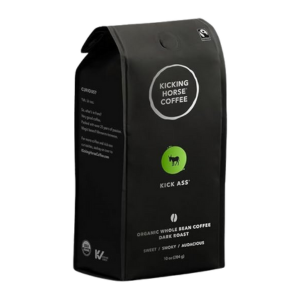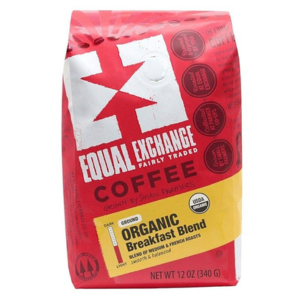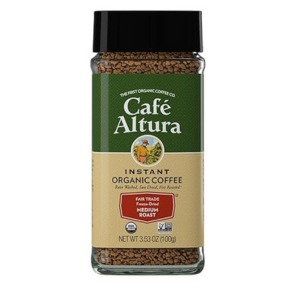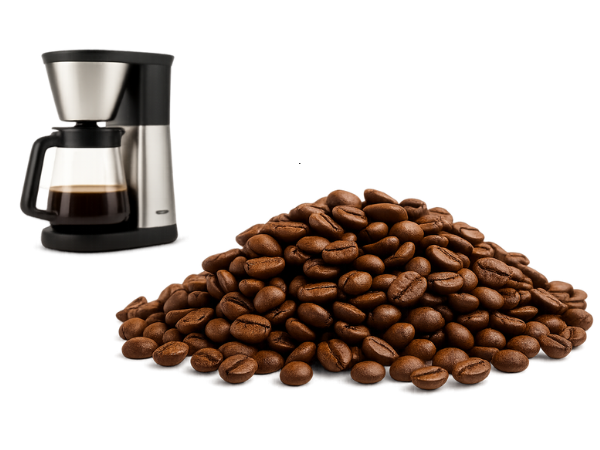Fair Trade Coffee is more than just a label on a bag of beans — it represents a global movement to ensure farmers are paid fairly, communities thrive, and the environment is protected. For coffee drinkers, it means every sip supports a more ethical and sustainable supply chain.
Defining Fair Trade Coffee
Fair Trade Coffee is coffee that has been certified to meet strict social, economic, and environmental standards. These standards are designed to protect farmers, workers, and ecosystems.
Core principles of Fair Trade Coffee include:
- Fair Prices – Farmers receive a minimum price that covers sustainable production costs.
- Fairtrade Premium – An additional sum invested in community projects like schools, clinics, or clean water.
- Safe Working Conditions – Prohibits child labor, forced labor, and unsafe practices.
- Environmental Protection – Encourages organic farming, biodiversity, and reduced chemical use.
- Transparency – Supply chains are audited for accountability and traceability.
Together, these principles ensure that Fair Trade Coffee benefits both the people who grow it and the consumers who enjoy it.
The Origins of the Fair Trade Movement
The Fair Trade movement began in the mid‑20th century as a response to global trade inequalities. Coffee became one of its central products due to the volatility of coffee prices and the vulnerability of small farmers.
Key milestones in Fair Trade Coffee history:
- 1960s – International Coffee Agreements attempted to stabilize prices.
- 1988 – The first Fair Trade coffee certification, “Max Havelaar,” launched in the Netherlands.
- 1990s – Expansion of Fair Trade labels across Europe and North America.
- 1997 – Fairtrade International (FLO) was formed to unify standards worldwide.
- 2000s – Fair Trade USA and other organizations expanded certification in the U.S. market.
From its origins in Europe to its global reach today, Fair Trade Coffee has grown into a movement that connects farmers and consumers through ethical trade.
Top 3 Fair Trade Coffees to Try
Fair Trade Coffee is widely available, but some brands stand out for quality and impact. Here are three popular options that combine ethical sourcing with excellent flavor. Each one reflects a different roast style and origin.
Kicking Horse Coffee, Kick Ass (Dark Roast)
Kicking Horse Coffee’s Kick Ass Dark Roast is one of the most popular Fair Trade and Organic blends in North America. Roasted in the Canadian Rockies, it’s known for its bold, smoky flavor and ethical sourcing.
Key Details:
- Origin: A blend of beans from Indonesia and South America.
- Roast Level: Dark roast, with glossy beans and a rich aroma.
- Flavor Notes: Chocolate malt, molasses, licorice, and an earthy finish.
- Certifications: Fair Trade, USDA Organic, Kosher, Shade‑Grown.
- Brewing Tips: Works beautifully in French press, drip brewers, and espresso; also strong enough for cold brew.
Kick Ass lives up to its name — it’s a bold, full‑bodied coffee that appeals to those who want intensity without bitterness, while also supporting ethical farming practices.

Equal Exchange Organic Breakfast Blend (Medium Roast)
Equal Exchange is a worker‑owned cooperative that has been pioneering Fair Trade coffee in the U.S. since the 1980s. Their Organic Breakfast Blend is a smooth, approachable option that balances flavor with social impact.
Key Details:
- Origin: Blend of beans from Latin American farmer cooperatives.
- Roast Level: Medium with a touch of French roast for depth.
- Flavor Notes: Vanilla, milk chocolate, and a hint of citrus brightness.
- Certifications: Fair Trade, USDA Organic, Kosher.
- Brewing Tips: Excellent for drip machines and pour‑over; its balance makes it a great “everyday” coffee.
This blend is ideal for coffee drinkers who want a smooth, balanced cup that’s easy to enjoy daily, while also knowing their purchase supports small‑scale farmers directly.

Café Altura Organic Fair Trade Coffee (Medium Roast)
Café Altura was one of the first organic coffee companies in the U.S., founded in 1980. Their Organic Fair Trade Medium Roast reflects decades of commitment to sustainability and quality.
Key Details:
- Origin: Sourced from family farms across Latin America, Africa, and Asia.
- Roast Level: Medium roast, small‑batch roasted in Ventura, California.
- Flavor Notes: Bright, clean cup with cocoa, nutty undertones, and citrus hints.
- Certifications: Fair Trade, USDA Organic, Biodynamic (select lines).
- Brewing Tips: Performs well in drip brewers, pour‑over, and French press; its clarity also makes it a good choice for iced coffee.
This coffee is perfect for those who value clean, nuanced flavors and want to support one of the pioneers of organic and Fair Trade coffee in the U.S.

How Fair Trade Certification Works
Fair Trade certification is a rigorous process that ensures standards are met across the supply chain. Independent auditors verify compliance with social, economic, and environmental requirements.
How certification is maintained:
- Application – Farmer cooperatives or plantations apply through Fairtrade International or Fair Trade USA.
- Audits – Independent body (FLOCERT) inspects farms and supply chains.
- Minimum Price – Farmers are guaranteed a base price plus a premium.
- Ongoing Monitoring – Regular and unannounced audits ensure compliance.
- Corrective Action – Non‑compliance must be fixed before certification is renewed.
This system ensures credibility, giving consumers confidence that Fair Trade Coffee truly meets ethical standards.
Benefits of Fair Trade Coffee for Farmers
For farmers, Fair Trade is more than a label — it’s a lifeline that provides stability and empowerment in an unpredictable global market.
Key benefits for farmers include:
- Stable Income – Minimum price protects against market crashes.
- Community Investment – Premium funds schools, healthcare, and infrastructure.
- Empowerment – Farmers join cooperatives, gaining a stronger voice in trade.
- Training – Access to agricultural education and quality improvement programs.
- Market Access – Certified farmers can reach international buyers more easily.
By addressing both economic and social needs, Fair Trade Coffee helps farming communities build resilience and long‑term prosperity.
Environmental Impact of Fair Trade Coffee
Fair Trade standards also emphasize environmental sustainability, ensuring coffee farming protects ecosystems for future generations.
Environmental practices promoted by Fair Trade:
- Organic Farming – Reduced use of pesticides and synthetic fertilizers.
- Shade‑Grown Coffee – Preserves biodiversity and prevents deforestation.
- Soil & Water Conservation – Encourages composting, crop rotation, and efficient irrigation.
- Climate Resilience – Supports planting of disease‑resistant varieties and agroforestry.
- Reduced Carbon Footprint – Encourages sustainable transport and processing methods.
These practices not only protect the planet but also improve coffee quality, making Fair Trade Coffee a win‑win for farmers and consumers.
What Fair Trade Means for Coffee Drinkers
For consumers, Fair Trade Coffee offers both ethical assurance and enjoyable flavor. Choosing Fair Trade means your purchase supports farmers and sustainable practices.
Benefits for coffee drinkers include:
- Ethical Choice – Confidence that farmers are treated fairly.
- Better Quality – Sustainable farming often produces higher‑quality beans.
- Transparency – Certification provides traceability from farm to cup.
- Community Impact – Every purchase contributes to global development.
- Peace of Mind – Supports environmental stewardship and social justice.
Ultimately, Fair Trade Coffee allows drinkers to enjoy their morning cup knowing it carries a positive impact far beyond their kitchen.

